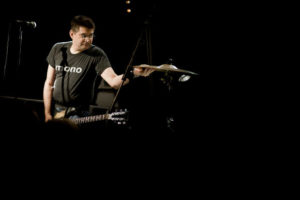
'Expertise is underrated': Steve Albini's top tips for studio engineers
It’s hard to determine whether Steve Albini’s long-standing reputation as one of rock’s great contrarians has been a cumbersome burden or a blessing in disguise.
For the uninitiated, the root of Albini’s status as a provocateur stems largely from his swift and economic approach to engineering. From day one he has refused to acknowledge himself as a producer, claiming that his job is to record and represent the sound of the client as purely and accurately as possible – nothing more, nothing less.
He famously doesn’t take royalties on the records he engineers, favouring what has been described as a highly affordable one-off payment on a project-by-project basis. PSNEurope editor Daniel Gumble spoke to Albini about being an engineer, his favourite albums to work on and whether they’ll ever be another Nirvana. Read the full article on site tomorrow (April 5).
What’s the best thing about being an engineer?
Getting to see other people realising their life’s ambition. It is an immensely satisfying and rewarding thing to see someone sitting on the sofa listening back to an album they have dreamed about making their whole life. I wouldn’t trade that for the world.
Who were your studio heroes?
There were a couple of people who were direct mentors of mine. John Loder who ran Southern Studios in London did a bunch of early punk rock records at the beginning of the indie label movement. The records he made were done very quickly but with impeccable sound quality. Blistering records for Crass, early Bauhaus, all of those made an indelible impression on me as a listener. Then I got to know him and he gave me a lot of technical advice I carry with me to this day. Another would be Ian Burgess. He worked with all the bands that got me into music – The Effigies, Naked Ray Gun, Savage Beliefs. He became a close friend and a mentor, and I emulated him in a lot of ways.
What’s the best album you’ve worked on?
I don’t have a favourite. I’m asked that question a lot and I should come up with an answer. What I most remember is not a particular album or session but the relationships I’ve been able to maintain with people who have come to the studio again and again. I did a record in 2016 with Robbie Fulks. Off and on I’ve been working with him since around 1984. The record he made last (Upland Stories) was nominated for a Grammy, which I know was quite satisfying for him. Similarly, I’ve made a bunch of records with Kim Deal, the first being the Pixies’ Surfer Rosa, but I’ve also done a bunch of Breeders songs. I don’t work on everything she does, but when I do it’s immensely rewarding.
Which artist would you most like to work with?
I used to have a wish list of people I’d love to have worked with, but I feel at this point I should be content with the people I’ve worked with who were personal heroes of mine. I got to make an album with the fucking Stooges, who were one of the bands that got me into music in the very beginning. An experience like that ought to be enough for anybody. I’ve long fantasised about what it would be like to make a Crazy Horse record. It would be an amazing experience for me because I’m such an enormous fan, but I’m not sure how much Neil Young and Crazy Horse would enjoy it!
Will there ever be another Nirvana?
You never know, but I think it’s extremely unlikely because people’s listening tastes are being catered to with such specificity and minute detail that you don’t have this wave of popularity where something overtakes everything else. The Internet’s dissemination of music has decentralised the gatekeeper aspect of the music business. Culturally that is unarguably a very good thing. A lot of people in my business moan that they don’t make as much money as they used to because they can’t force people to pay for things anymore. I see it from the opposite perspective of someone who likes music as opposed to someone trying to make money off of it. I don’t subscribe to the notion that a songwriter deserves money just because someone has heard their music. It’s a childish perspective. I hope and believe that sense of entitlement from the music business will modify itself.
What advice do you have for up and coming studio engineers?
From a technical standpoint there is a cultural view that expertise is unnecessary and that you can fuck around and eventually come up with something good. While that can occasionally happen, expertise at a technical level is underrated. It’s definitely worth knowing how to get the best out of your equipment, whether your equipment is a guitar, an amplifier, a mixing console, a recording interface or software. It is worth it to become expert at it – it is absolutely not a waste of time to know what you’re doing.
Read the full article on site tomorrow (April 5).
Want more stories like this sent straight to your inbox? Subscribe to our free daily newsletter here.
Source: mi-pro.co.uk



